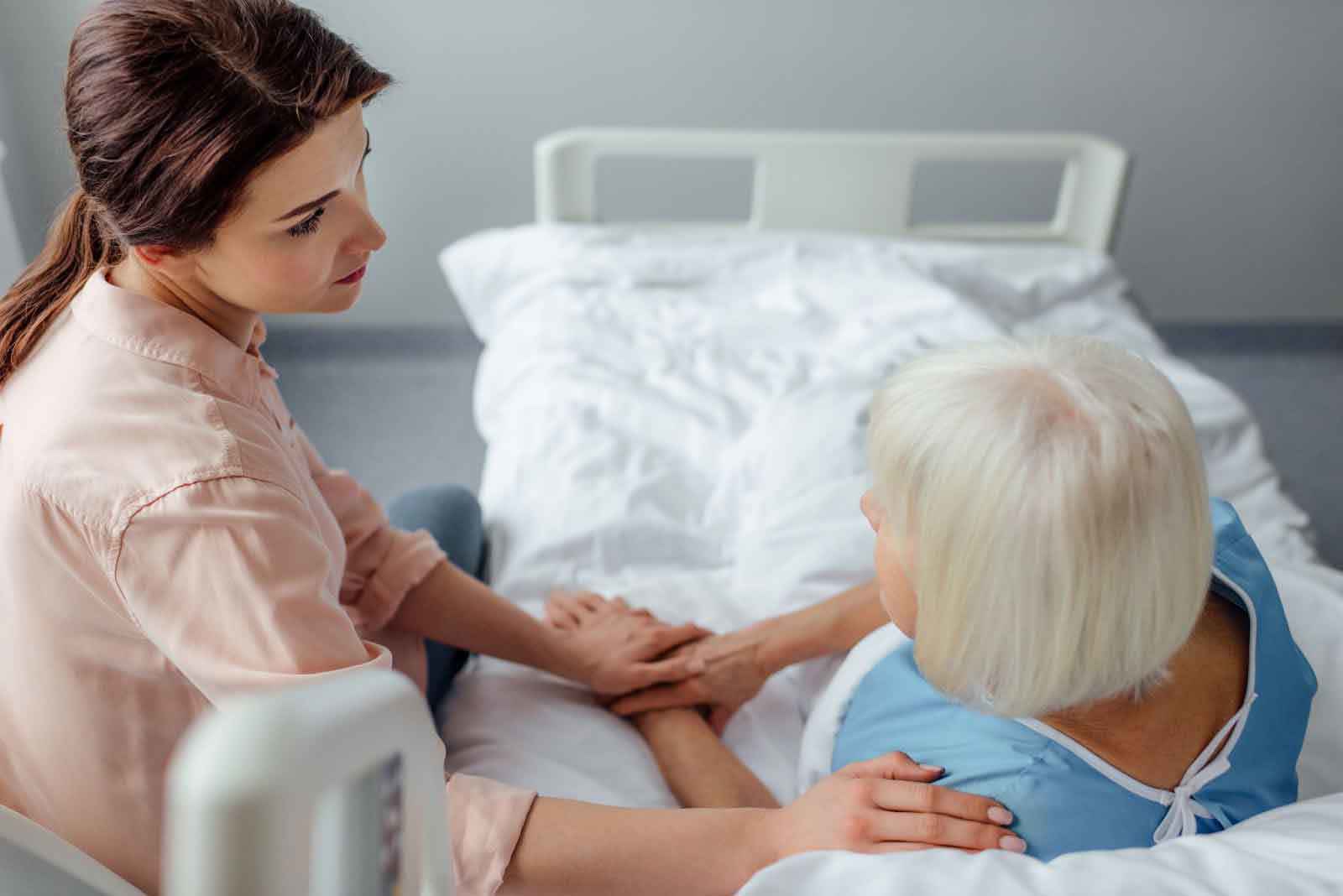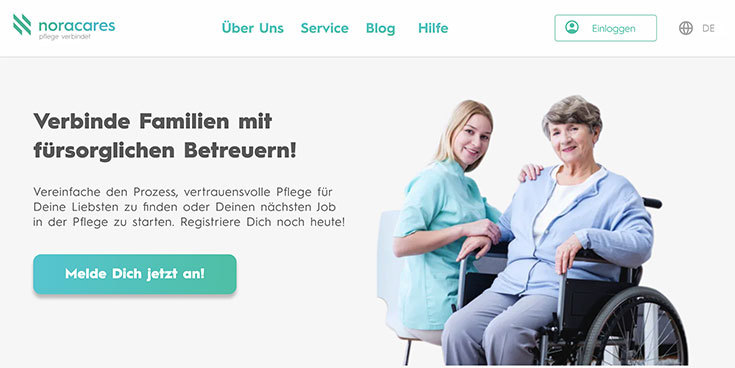Comparison of training for the nursing profession in Europe
Are you looking for the right nurse from Europe? In this article, we show you how you can compare the various nursing training programs to find the perfect caregiver for your loved ones.
Who wouldn't want their loved ones to be in the best hands - looked after by a caregiver who not only knows their trade, but also works with heart and dedication. But how do you find that perfect nurse, especially in a Europe where nursing training varies so much from country to country? In Germany, nurses often undergo intensive, dual training, while in Eastern Europe training is shorter and more practice-oriented. It is precisely this diversity of training that can be an opportunity to find the ideal care for your relative. In this article, we take you on a journey through the various care training programs in Europe and show you what really matters when choosing the right caregiver.
In Europe, nursing training is as diverse as the countries themselves. While in Austria, nurses are prepared for assistant and specialist nursing activities through specialized training, prospective nurses in Germany undergo a comprehensive, dual training path. Here they between theory in the classroom and practice in the hospital - a model that prepares them for the diverse demands of the profession.
In eastern countries such as Poland and Romania, on the other hand, a slightly different approach is taken. Training periods are often shorter there, with a stronger focus on direct care and support. This does not mean that there is a lack of quality - on the contrary, practical relevance and experience in day-to-day care are particularly important here.
The differences can be seen not only in the duration, which ranges from two to three years, but also in the qualifications. In some countries, a nurse can enter the profession directly after vocational training, while in other countries - such as Germany - additional further training or specialized Further education are in demand. This diversity offers a wide range of skills that you can consider when choosing the right caregiver for your loved one.
Comparison of nursing education in selected countries
Care training in Europe is like a colorful mosaic - each country adds a unique tile that shapes the overall picture. Each country has its own strengths and challenges, which shine like finely cut gemstones, but also have rougher edges. Anyone looking for a nurse from Europe is embarking on a journey through different worlds in which training varies like a work of art. Sometimes it is practical and manual, like an experienced sculptor who learns from every moment, sometimes theoretical and profound, like an architect who has thought through every detail. These differences shape specific qualifications and practical experience that sparkle differently from country to country - and therein lies the art of finding the right caregiver for your own needs.
Austria
In Austria, there is a tiered training system. A distinction is made between nursing assistance and training to become a qualified nurse. This specialization makes it possible to deploy nursing staff according to their qualifications. The advantage lies in the expertise, which is particularly evident in specialized nursing care. If you hire a nurse from Austria, you can expect a well-trained specialist who has mastered both the basics and advanced nursing techniques. However, similar to Germany, the long training period and high proportion of theory can mean that nurses have less practical experience and still need to get used to everyday life in specific situations.
Germany
In Germany, nurses undergo a three-year, dual training course that focuses heavily on theoretical content. This theory is combined with practical assignments in care facilities, but it is often said that the theory does not always prepare you perfectly for real-life care work. If you hire a nurse from Germany, you can assume that they have received comprehensive training - in medical knowledge, legal principles and social care. However, despite the theoretical depth, newly trained nurses may still need some practical training, as everyday life often brings unforeseen challenges. However, German nursing staff are particularly well suited to complex care situations.
Eastern Europe
In countries such as Poland or Romania, nursing training is often shorter and focuses heavily on practice. Nursing staff are used to quickly immersing themselves in everyday working life and gaining a lot of practical experience. If you hire a nurse from Eastern Europe, you can expect them to be very hands-on. These nurses often have a high level of resilience as they are used to working in intensive conditions. Language barriers and cultural differences can be a challenge, but with some training, caregivers from this region often provide very reliable and warm-hearted care - especially when it comes to basic daily care.
Southern and Western Europe
Nurses from countries such as Italy or Spain often go through an academically oriented training system. The focus here is on medical theory and in-depth specialist knowledge. The training usually lasts several years and is supplemented by practical phases. If you hire a nurse from Southern or Western Europe, you can expect a well-trained specialist who is particularly well versed in medical care. Nurses from these countries often have a high level of empathy and professionalism, although the practical relevance may be somewhat less pronounced at the beginning compared to shorter training systems.
These different paths to nursing training offer a variety of advantages: Sometimes it's the practical experience, sometimes it's the in-depth knowledge. But no matter which path the nurse has taken, it is worth taking a close look when looking for the right nurse and carefully checking the training and qualifications. In general, however, you can rely on all trained nurses. The important thing is that the likeability and personal values (quality standards) match and that you can communicate with each other.
When you're hiring a caregiver, it's like opening a treasure chest full of important documents - each paper tells you something about the caregiver's qualifications, skills and experience. It's crucial to take a close look at the certificates and credentials they bring with them, as these documents are key to providing competent and reliable care.
Nursing certificates and professional qualifications
The most important document you should request is the official certificate of completion of nursing training. In Germany and Austria, this is usually a diploma or certificate proving that you have successfully completed your nursing training. In Eastern Europe, for example in Poland or Romania, you should ask for a professional qualification or a certificate confirming that you have completed training in the care sector. Make sure that the documents are up to date and ideally translated into the local language or at least into English.
Recognition within the EU
Within the EU, there are provisions that facilitate the recognition of professional qualifications. Nevertheless, it is important to make sure that the nurse provides the necessary documents for the recognition of their qualifications, especially if they come from another country. In Germany and Austria, for example, you need official proof that the training is also recognized here - this is often confirmed by a professional license or certificate of recognition from the competent authority.
Further training and additional qualifications
Certificates of advanced training, for example in special care areas such as dementia-care, palliative care or first aid, are a valuable addition. These certificates show that the nurse is willing to undergo continuous further training and deepen their knowledge. Especially in the 24-hour nursing or in specialized nursing situations, you should look for such continuing education certificates.
Health certificate and police clearance certificate
Ideally, you should also have a health certificate in front of you. This confirms that the carer is in good health to carry out their duties - a must in a job that requires physical and mental resilience. Equally important is a current police clearance certificate that proves their trustworthiness, especially if the caregiver is to work in your home.
Language skills and communication skills
Language skills are also crucial, especially if you are hiring a caregiver from abroad. Make sure that the caregiver has proof of their language skills, be it through certificates from language courses or experience reports. Good communication is essential in care - it ensures smooth cooperation and gives you the certainty that your wishes will be understood and implemented.
These documents and certificates are like a compass of trust - they guide you to a qualified caregiver who meets the requirements and provides your loved ones with the best possible care.
If you're looking for the perfect caregiver - someone who is not only qualified but also a good fit for your loved ones, the selection process can feel like a confusing map on which you can hardly find the right path. Here comes noracares into the game, like an experienced tour guide who leads you safely and without detours through the jungle of possibilities. noracares takes you by the hand and guides you step by step through the process. Instead of spending hours searching the internet for suitable caregivers or hoping for recommendations, noracares offers you a large network of qualified caregivers from all over Europe. These caregivers have different backgrounds and experience, but they all have one thing in common: they all have a passion for care and have posted their qualifications and certificates on the platform. So you can be sure that every caregiver you find is well prepared for the caregiving tasks.
Targeted search for the right qualifications
On the platform, you can specify exactly which qualifications your caregiver should have - be it experience in caring for the elderly, knowledge in caring for dementia patients or special skills in the medical field. noracares works like a precise compass: you enter your requirements and the platform shows you a selection of caregivers who perfectly match your needs. It takes into account not only professional qualifications, but also language skills and personal characteristics that are important for day-to-day care. You create a profile, enter your wishes and requirements for the caregiver and are immediately presented with a selection. If you are unsure, you can take a closer look at the profiles of the caregivers, including all certificates and experience reports. An integrated messaging system allows you to contact the caregivers directly, ask questions and organize an initial meeting.
noracares not only offers you a platform - it is your guide to the world of qualified nursing staff. Step by step, it guides you to the perfect care so that you can fully rely on the fact that your loved ones are in good hands.
At the end of your search for the perfect caregiver, it's not just the certainty that your loved ones are in the best hands - it's the feeling of having found a valuable companion for their everyday life. Regardless of where the carer comes from, the most important thing is that they fit in with you and your family, understand your needs and are passionate about what they do.
So if you're ready to take the next step and find a caregiver who is a good fit for you both personally and professionally, let noracares be your compass. Start your search now and discover how easy it can be to find support that is not only qualified but also responsible for your loved ones.
Register today at noracares and start your journey to the best possible care!
- Nursing Assistant / Nursing Specialist: In Austria, a tiered training system. Care assistants provide basic care, while specialists carry out more complex tasks. In Germany, there are similar, but often dual training programs.
- Professional permit / certificate of recognition:An official document confirming that a foreign professional qualification is recognized in Austria or Germany.
- Polizeiliches Führungszeugnis:A certificate that proves that a person has no criminal record and is therefore trustworthy - particularly important when providing care at home.
- 24-hour care: A form of care in which a caregiver lives in the household Yours Relatives lives and is available around the clock (with rest periods).
- Dementia care: Specialized care for people with dementia, dedicated to special needs (confusion, memory loss).
- Matching algorithm: A system that matches the needs of care seekers with the profiles and qualifications of care workers to enable a suitable placement.
- Further education: Additional courses or training that nurses complete to improve their expertise in certain areas (e.g. wound care, palliative care, palliative care, etc.). e.g. wound care, palliative care).
- Language skills: skills in a specific language that are crucial for smooth communication between caregiver, patient and family.









